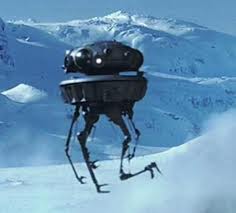 There seems to be an enormous quantity of nonsense on the internet about "Postbiological evolution".
There seems to be an enormous quantity of nonsense on the internet about "Postbiological evolution".Acoording to the Wikipedia page on the topic:
Postbiological evolution is a form of evolution which has transitioned from a biological paradigm, driven by the propagation of genes, to a nonbiological (e.g., cultural or technological) paradigm, presumably driven by some alternative replicator (e.g., memes or temes), and potentially resulting in the extinction, obsolescence, or trophic reorganization of the former.Of course, "postbiological evolution" is an oxymoron. Culture and technology not nonbiological - they are biological. Culture and technology are products of living systems - they are part of biology.
This is a basic mistake which I have highlighted before.
Paul Davies is one of those who have been suckered in. He writes - in "The Eerie Silence":
I think it very likely – in fact inevitable – that biological intelligence is only a transitory phenomenon, a fleeting phase in the evolution of the universe. [...] If we ever encounter extraterrestrial intelligence, I believe it is overwhelmingly likely to be post-biological in nature.I'm sorry, but: no. Extraterrestrial intelligence, is not likely to be "post-biological" in nature. There's no such thing as "post-biological" intelligence. The whole concept is just stupid. Intelligence will always be biological. If you think otherwise, look up "biology" in the dictionary.
Dick (2002) writes:
The possibility of a postbiological universe ~ one in which most intelligence has evolved beyond flesh and blood to artificial intelligence (AI) ~ has not been considered in detail because humans are unaccustomed to thinking on cosmic time scales and following the logical consequences of cosmic time scales for biology and culture.
Er, no. A "postbiological universe" would be one in which there were no living things any more. Machine intelligence would be biological, not "postbiological".










it might be better to term it non-organic evolution, as memetic structures such as ideas, concepts and others can be referred to as non-organic life forms. this keeps the 'bio' intact in relation to cultural processes.
ReplyDelete